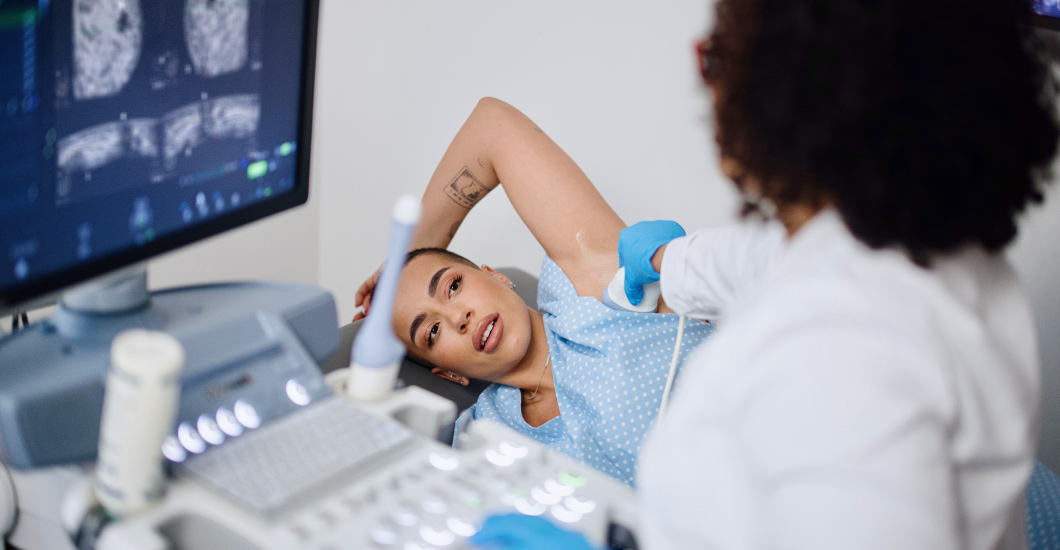Women’s health screenings: What you need at every age
Doctor's advice /
Which women’s health screenings do you need? Stay healthy at every age. Catch problems early. Book your appointment at Sanitas Medical Center today!

Your health matters—and it’s always changing. That’s why women's health screenings are so important. These tests can find problems early, even before symptoms show. Getting the right screenings at the right time helps you stay strong, active, and on top of your game.
This guide explains which women's health screenings are recommended based on your age. These guidelines come from trusted sources like the U.S. Preventive Services Task Force and others. Remember, your doctor may adjust these based on your personal health needs.
Why women’s health screenings matter
Screenings are tests that check for health problems before you feel sick. Many serious conditions, like high blood pressure, cancer, and diabetes, can develop without symptoms. By catching these issues early, you can get treatment sooner—which often means better results.
Screenings aren’t just for older adults. Whether you’re in your 20s or your 70s, preventive care helps you stay on top of your health.
Women’s screenings in your 20s and 30s: Build a strong foundation
Ages 18 to 39 are about building healthy habits that last a lifetime. Here are the most important screenings for this age group:
1. Blood Pressure
- Check at least once every 3–5 years if normal.
- Yearly if your blood pressure is high.
Why it matters: High blood pressure often has no symptoms but can lead to heart disease or stroke.
2. Cervical cancer (Pap Test & HPV Test)
- Ages 21–29: Pap test every 3 years.
- Ages 30–65: Pap test every 3 years or every 5 years with an HPV test.
Why it matters: These tests find early cell changes that could lead to cancer.
3. Sexually transmitted infections (STIs)
- If you are under 25 and sexually active: yearly screening for chlamydia and gonorrhea.
- If older with risk factors, continue regular testing.
Why it matters: STIs often have no symptoms but can affect your long-term health and fertility.
4. Breast health
- No routine mammograms yet unless you have a family history or genetic risk.
- Talk to your doctor about your personal risk.
5. Depression screening
- Part of your regular health check-up.
Why it matters: Mental health is just as important as physical health.
6. Vaccines
- Stay up to date on Tdap, flu, COVID-19, and HPV vaccines.
Why it matters: These protect you from preventable diseases.
Essential screenings for women 40–49: Focus on early detection
As your body changes, your screening needs grow. These screenings can detect problems early:
1. Breast cancer (Mammogram)
- Start mammograms at age 40.
- Continue every 1–2 years based on your health and preference.
Why it matters: Early detection saves lives.
2. Cervical cancer
- Continue with Pap and/or HPV tests as before.
3. Diabetes screening
- Start at age 35 if you have a BMI ≥25 (or ≥23 for Asian American women).
Why it matters: It finds early signs of diabetes or prediabetes.
4. Cholesterol test
- Get checked by age 45, earlier if you have risk factors.
Why it matters: High cholesterol can raise your risk for heart disease.
Recommended health tests for women 50–64: Stay proactive
Prevention becomes even more important as you enter your 50s. These screenings are essential:
1. Colorectal cancer
- Start at age 45.
- Colonoscopy every 10 years or other stool tests more often.
Why it matters: It finds early cancer or pre-cancerous growths.
2. Osteoporosis (Bone Density Test)
- Recommended if postmenopausal and have risk factors.
- All women should be tested by age 65.
Why it matters: It helps prevent fractures and bone loss.
3. Breast cancer (Mammogram)
- Continue every 1–2 years.
4. Cervical cancer
- Keep testing until age 65, if past results were normal.
5. Hepatitis C
- One-time test if born between 1945 and 1965, or if at risk.
Why it matters: Hepatitis C can be silent but lead to serious liver problems.
Health screenings for women over 65: Personalized care
In your senior years, health screenings help you stay independent and healthy longer:
1. Bone density (DEXA Scan)
- At age 65 and older.
- Why it matters: Prevent fractures and manage osteoporosis.
2. Breast cancer (Mammogram)
- Continue every 1–2 years until age 74.
- After 75, discuss with your doctor.
3. Colorectal cancer
- Continue screening through age 75.
- After that, it depends on your overall health and past results.
4. Vaccines
- Annual flu shot.
- Shingles vaccine (2 doses after age 50).
- Pneumonia vaccine starting at age 65.
5. Cognitive and fall risk assessments
- Done during routine check-ups.
Why it matters: Helps maintain your independence and quality of life.
A final word on women’s health screenings
Every woman is different. Your doctor might suggest earlier or more frequent testing based on your family history, health conditions, or lifestyle. That’s why it’s important to talk openly with your provider and schedule regular check-ups.
Health screenings are one of the most powerful tools for staying healthy. They catch problems early, guide your care, and give you peace of mind. Whether you’re 25 or 75, it’s always the right time to take care of your health.
Ready to take the next step?
At Sanitas Medical Center, we care about you and your future. Our team is here to guide you through the right screenings for your age and health needs. Schedule your next check-up today and stay ahead of your health!
Call 1-844-665-4827 to book an appointment now at Sanitas Medical Center.


